With an ensemble cast that features Eddie Redmayne, Alex Sharp, Sacha Baron Cohen, Joseph Gordon-Levitt, and Yahya Abdul-Mateen II, Aaron Sorkin’s The Trial of Chicago 7 is a drama that examines the legal proceedings after riots in Chicago in 1968. In case you’re curious about its authenticity, yes, ‘The Trial of Chicago 7’ is based on a true story. Let’s explore the events and aftermath of the riots!
The Chicago Riots of 1968
The 1960s brought about many political and social changes in American society. The most important outcome of the decade was undeniably the Civil Rights Movement. At its heel followed America’s involvement in the Vietnam War, which caused the country to be embroiled in many countercultural protests.
To peacefully oppose President Lyndon B. Johnson’s Vietnam War policies, many organizations such as the National Mobilization Committee to End the War in Vietnam (MOBE), Students for a Democratic Society (SDS), and the Youth International Party (Yippies) collaborated and went to Chicago. The aim was to go where the media was, i.e., at the Democratic National Convention that was being held in the city.
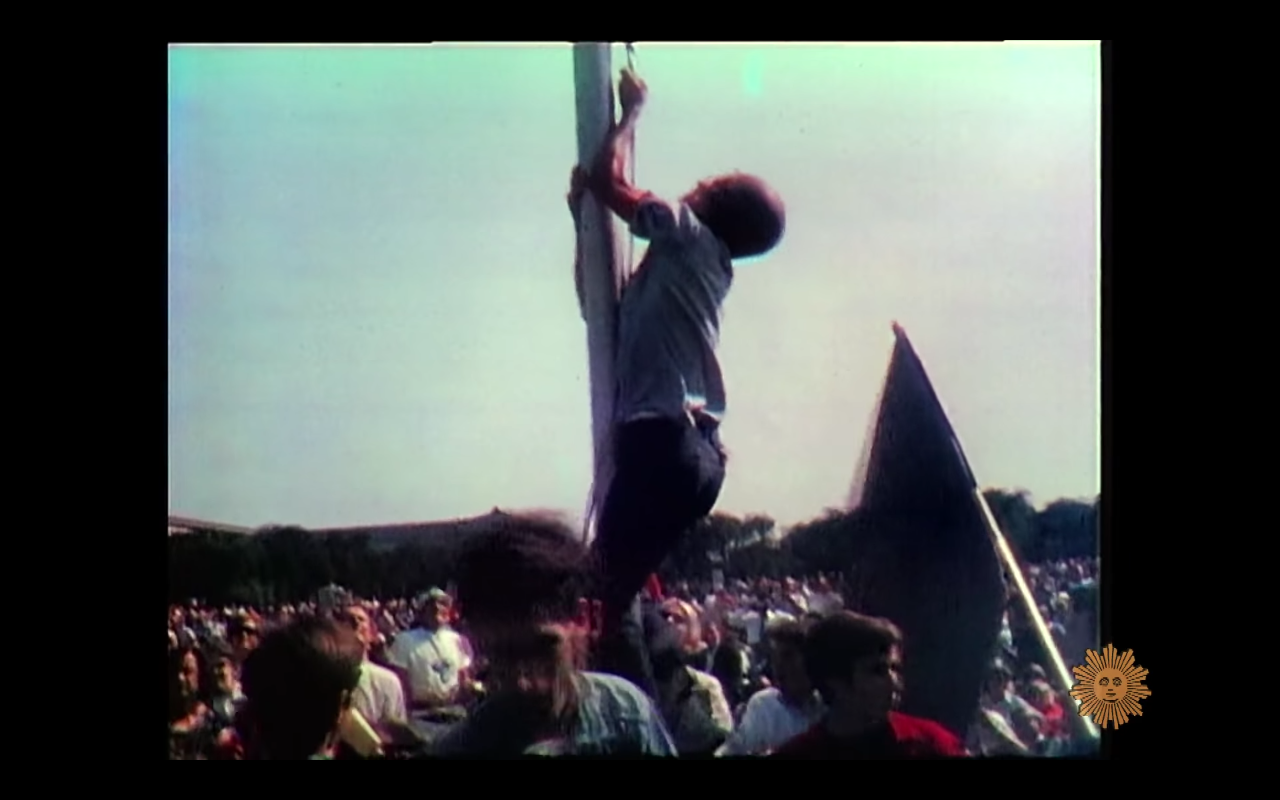
The plan was for many protestors to march from the Loop to the International Amphitheatre and camp in Lincoln Park, as most hotels were sold out. Despite numerous requests for permits from the city, only one was issued. This allowed them to converge at the south end of Grant Park. Furthermore, the city levied a curfew of 11 pm when it came to Lincoln Park.
The then Mayor, Richard J. Daley, also had 5,000 Army troops and 6,000 National Guardsmen waiting in addition to the 12,000 Chicago police officers to maintain law and order. A riot broke out when the police tried to impose the aforementioned curfew, and in the process, they used mace, tear gas, police batons and made several arrests. Protestors were also met with brute force when they tried to march to the International Amphitheatre. The riots lasted from August 23, 1968, to August 28, 1968.
The Trial
The eight men who were arrested and charged with conspiracy to incite violence were Tom Hayden, Rennie Davis, Jerry Rubin, Abbie Hoffman, David Dellinger, Bobby Seale, Lee Weiner, and John Froines. At this point in time, the group was called Chicago 8. They were also the first to be tried under America’s anti-riot law.
The former Attorney General under President Johnson, Ramsey Clark, had already looked into the matter and dismissed it. His team’s investigation found that the violence stemmed from the inability of the police officers to curb the protests. However, when President Nixon assumed office, John Mitchell took the post and sought to convict the left-wing activists. It is also noteworthy that although eight police officials were indicted on charges of civil rights violations, they were reportedly acquitted.
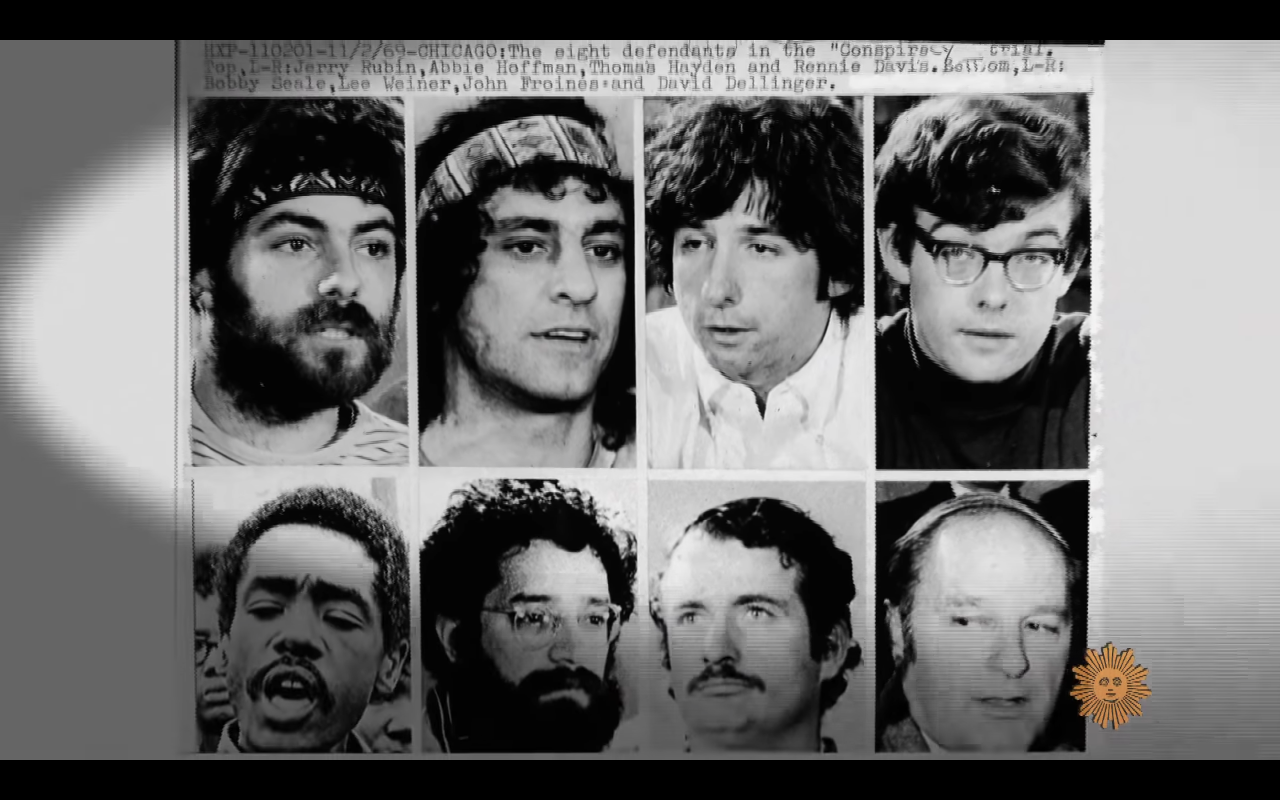
The trial began on September 24, 1969, and Judge Julius Hoffman was presiding over the case. He was known to side with the government attorneys, so things already looked bad when the case began. The defense counsel consisted of William Kunstler, Leonard Weinglass, Michael Kennedy, Michael Tigar, Charles Garry, Gerald Lefcourt, and Dennis Roberts. Richard Schultz and Tom Foran were prosecuting on behalf of the state of Illinois. Many sources have pointed to the fact that Judge Hoffman was biased towards the defendants.
Bobby Seale was the National Chairman of the Black Panthers. His lawyer, Charles Garry, needed gallbladder surgery at the time. Hence, he could not represent his client. When the Black Panther asked the judge to postpone his trial, the motion was dismissed. Furthermore, when Seale rejected the state-appointed lawyer and aspired to defend himself, Judge Hoffman denied him this right as well. Eventually, the judge, citing a previous U.S. Supreme Court case, Illinois v. Allen, ordered Seale to be bound and gagged in court as the Black Panther Chairman kept protesting the actions of the judge.
Seale had called Judge Hoffman a racist and a bigot to his face. Seale continued to appear like this for the next few days of the trial, and Kunstler also called the courtroom a medieval torture chamber. The most interesting thing was that Bobby Seale was not even one of the men who had organized the protests. He was in the city for some other work related to the Panthers. Eventually, his case was declared a mistrial, but he was still sentenced to 4 years in prison for contempt of court. After this incident, the remaining defendants were referred to as the Chicago 7.
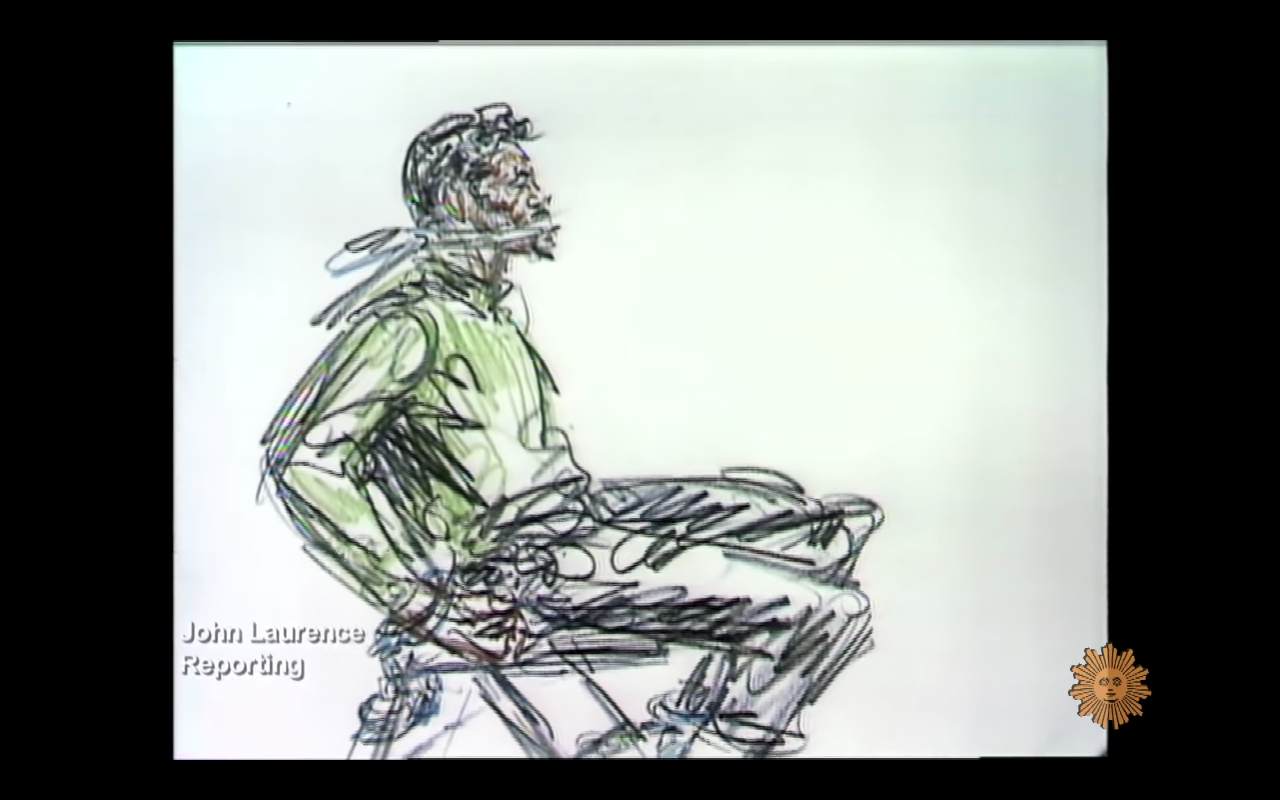
To say that the trial was one of the unique ones in American legal history would be an understatement. The Chicago 7 constantly disrupted the courtroom with antics like chanting “Hare Krishna” or reading poetry. There was even an instance where Abbie Hoffman and Jerry Rubin showed up to court wearing judicial robes. When asked to take them off, they agreed, but it turned out that they were wearing a police uniform underneath it. Emboldened by their lawyer to do such seemingly ludicrous acts, the defendants consistently insulted Judge Hoffman for his obviously tendentious actions.
The Chicago 7 trial was very high-profile. It lasted for five and a half months, and prominent celebrities like Allen Ginsberg, Phil Ochs, Judy Collins, Arlo Guthrie, and Jesse Jackson also testified. Before we discuss the verdict, it is imperative to note that Judge Hoffman held not only the defendants but also their legal counsel in contempt of the court. The sentences for these charges ranged from 2.5 months to 4 years.
The Aftermath of The Trial
The defendants were absolved of the conspiracy charge. However, only Lee Weiner and John Froines were acquitted on all other charges related to the riots. The remaining five were found guilty of crossing state lines with the intent to incite a riot. Each person was sentenced to 5 years in prison, along with a fine of $5,000. As if this weren’t enough, Judge Hoffman also ordered the Cook County Jail barbers to cut the now-convicted’s long hair.
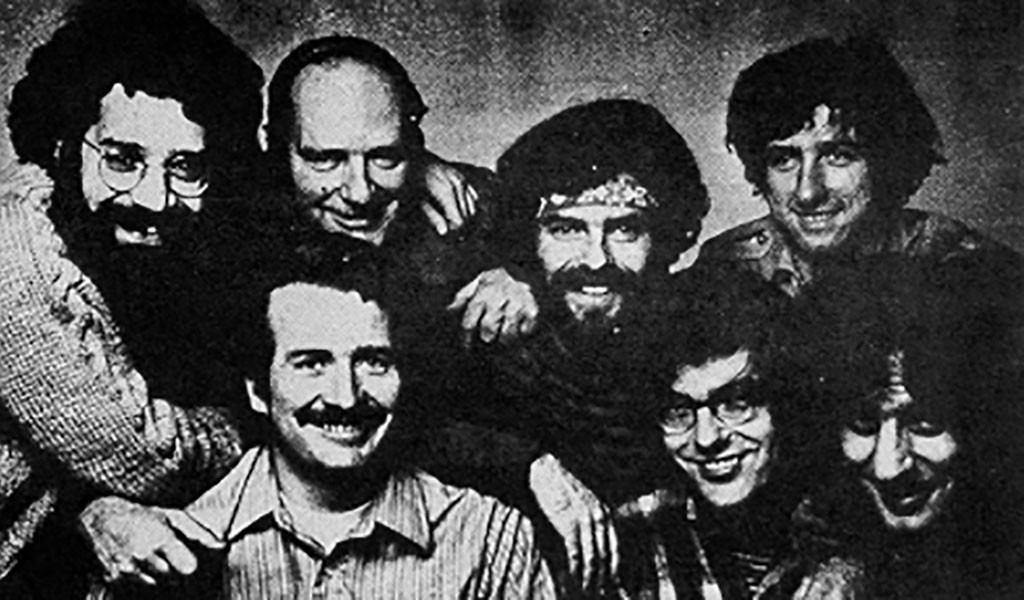
However, the United States Court of Appeals for the Seventh Circuit reversed this ruling on November 21, 1972. This was because of Judge Hoffman’s evidently prejudicial behavior and his refusal to let the defense attorneys sift the jury for cultural and racial bias. Furthermore, the FBI was surveying the office of the lawyers of the Chicago 7. The contempt charges were also overturned.
What Relevance Does The Movie Have in Today’s World?
It may interest you to know that Aaron Sorkin originally wrote the screenplay more than a decade ago. One morning, the producer, Steven Spielberg, told the acclaimed writer that he wanted to make a movie about the riots. In an interview with Entertainment Weekly, Aaron explained how the morning unfolded after agreeing to the project.
He said, “As soon as I got in my car, I called my father and said, ‘Dad, do you know anything about these riots in 1968 or a crazy conspiracy trial that followed?’ I had no idea what Steven was talking about, I just said yes to working with him. I remember Steven saying, ‘I really think it’s important that this film come out before the election.'” This movie was actually supposed to come out before former President Obama won the 2008 elections.
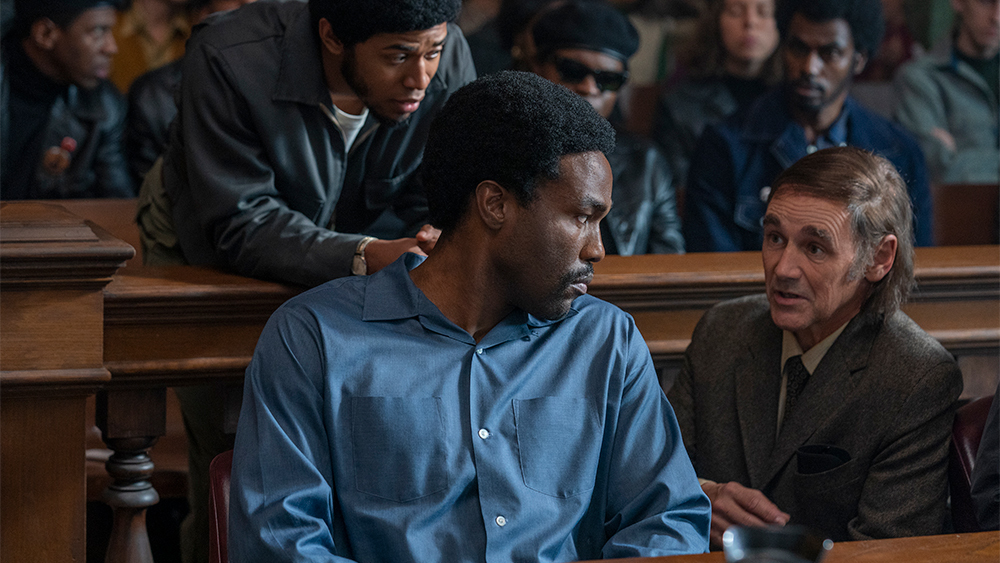
Juxtaposing the past and the present, ‘The Trial of Chicago 7’ makes it feel as though nothing has really changed within our society. Sorkin spoke about this sentiment and said, “I never wanted the film to be about 1968. I never wanted it to be an exercise in nostalgia or a history lesson. I wanted it to be about today. But I never imagined that today would get so much like 1968.”
The script went through many iterations, and Sorkin was the third director who ultimately saw the project through to completion. Given the political divide in America today, mainly due to President Donald Trump, this movie was made to drive home the point that everyone has a part in the revolution they want. In another interview, the director and writer spoke of the significance of releasing the movie ahead of this year’s elections.
He said, “We wanted to get it out before this election because right now I think is when we’re all talking about this, when we’re all thinking about this, when we’re seeing it every day on the news, and I’m not saying the film has a shelf life, but it should be out now… I think after Nov. 4, we’re going to be too exhausted to want to see this. Listen, we’ll be okay on Dec. 4, but we are going to need a water break.”
Read More: Best Historical Dramas on Netflix

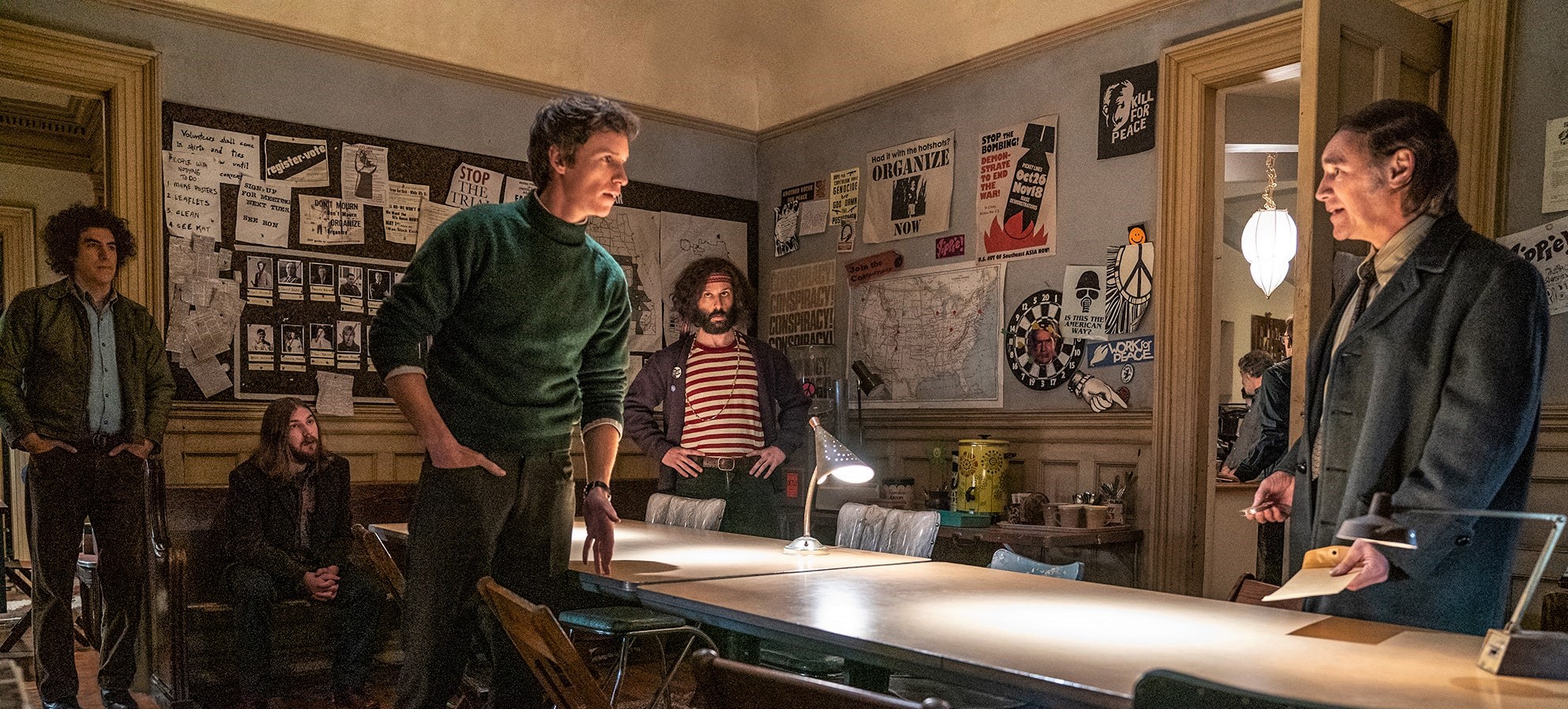
You must be logged in to post a comment.